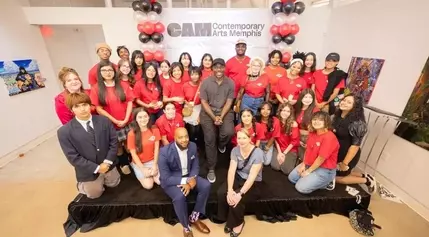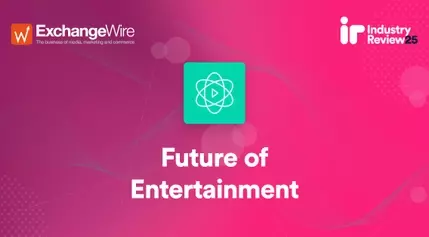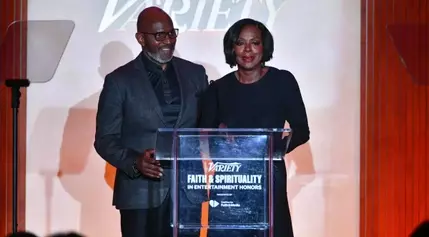
The convergence of entertainment and technology is set to take center stage at CES 2025, with a special focus on the Variety Entertainment Summit. Scheduled for January 8 at the Aria Resort & Casino in Las Vegas, this event promises to offer a forward-looking perspective on the future of media and tech innovation.
Unveiling Tomorrow's Entertainment Landscape: AI, Creativity, and Strategic Integration
Exploring the Intersection of Media and Technology
The annual Consumer Electronics Show (CES) draws over 140,000 attendees eager to explore the latest advancements across various industries. Among the highlights, the entertainment sector stands out as a pivotal area of interest. The sprawling exhibit space, spanning 2.5 million square feet, showcases innovations ranging from everyday gadgets to cutting-edge automotive displays. However, the heart of the matter lies in understanding how these technologies will shape the future of entertainment.One of the key events at CES 2025 is the Variety Entertainment Summit, which brings together leading figures from media and technology companies. Moderated by Jay Tucker, executive director of UCLA Anderson School of Management’s Center for Media, Entertainment, and Sports, the summit offers an unparalleled opportunity to glimpse the future. Unlike other segments of CES that celebrate past achievements, this summit focuses on what lies ahead, providing valuable insights into emerging trends and strategies.Pioneering Conversations: Leaders in Entertainment and Tech
The summit features a lineup of influential speakers, including executives from Amazon, Crunchyroll, Meta, NBCUniversal, Netflix, OnlyFans, Reddit, Walt Disney Studios, and Sphere Entertainment. These industry leaders will delve into the transformative impact of artificial intelligence (AI), the evolving role of creators, and the strategic integration of new technologies. Notably, three headliner conversations will spotlight Grammy-winning musician will.i.am, Snapchat CEO Evan Spiegel, and Sony Pictures Entertainment president Ravi Ahuja.will.i.am, founder and CEO of FYI, will share his vision for the future of music and entertainment. Evan Spiegel will discuss Snap’s innovative approach to engaging audiences through augmented reality and social platforms. Meanwhile, Ravi Ahuja will provide insights into Sony’s strategy for navigating the rapidly changing media landscape. Each conversation promises to shed light on the challenges and opportunities that lie ahead.Fans, Creators, and Marketers: Building New Connections
Tim Clark, chief brand officer of NASCAR, emphasizes the importance of connecting with younger audiences through digital platforms. Traditionally, sports like NASCAR were introduced through family gatherings around the television. Today, however, the entry point for many fans is through video games like Roblox, Fortnite, and Rocket League. This shift represents a significant opportunity for brands to engage with new generations in innovative ways.Clark acknowledges that while these integrations may not result in immediate spikes in fan numbers, they are already yielding tangible benefits. By embracing digital platforms, NASCAR can cultivate a loyal fan base that transcends traditional boundaries. This approach underscores the need for marketers to think creatively about how they connect with audiences in an increasingly digital world.Artificial Intelligence: A Double-Edged Sword in Entertainment
Artificial intelligence has emerged as a central topic in the entertainment-tech space, sparking both excitement and concern. On one hand, AI is seen as a powerful tool that can streamline creative processes and enhance user experiences. On the other hand, there are worries about its potential to disrupt established workflows and job roles.Jay Tucker points out that AI’s exponential growth makes it difficult for humans to fully grasp its implications. For AI to create real value, it must be integrated strategically into existing systems. Melody Hildebrandt, Fox’s chief technical officer, warns against repeating the mistakes made during the social media revolution, when studios ceded too much control to big tech platforms. Instead, she advocates for Hollywood to leverage its own technological expertise and maintain ownership over critical data pathways.Navigating the Legal and Regulatory Challenges
As AI continues to evolve, the legal framework surrounding its use remains underdeveloped. Both creatives and corporations face uncertainties regarding intellectual property rights and data security. While the Writers Guild of America (WGA) and SAG-AFTRA have established some guidelines in their latest contracts, comprehensive legislation is still lacking.Tucker notes that even if policymakers were experts in AI, crafting effective regulations would be a formidable challenge. Ensuring fair outcomes for all stakeholders requires careful consideration of the technology’s potential impacts. As the entertainment industry moves forward, it must advocate for clear rules that protect both creators and consumers while fostering innovation.New

Entertainment

Entertainment

Entertainment

Entertainment

Entertainment

Entertainment

Entertainment

Entertainment

Entertainment

Entertainment







































